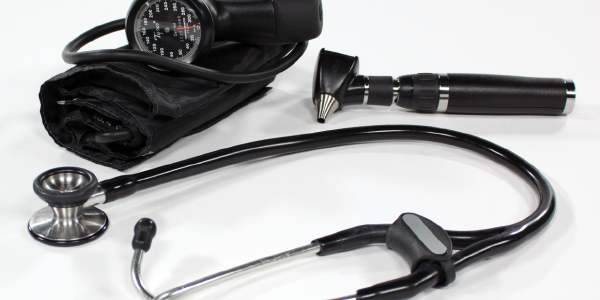Friday May 3, 2024
Personal Planner

Chronic Illness - Care of Your Person
If you have a chronic illness, your personal planning will need to involve careful consideration of your condition. Many Americans experience ALS disease, Alzheimer's, Huntington's disease, Parkinson's disease, multiple sclerosis (MS) or other types of chronic diseases.
If you or a loved one has one of these conditions, it is important to communicate with your attorney and other advisors about your condition. There are specific planning options both during life and for your testamentary plan that should be considered.
ALS (Lou Gehrig's disease) is a disease that progressively affects a person's ability to control muscle movement. Symptoms include muscle twitching and cramping. Most ALS victims will eventually need a ventilator for breathing, but often will be quite clear-headed during their lifetime.
Alzheimer's is a disease with a progressive reduction in mental capacity. Mild Alzheimer's may be identified by memory lapse and forgetfulness. As Alzheimer's progresses, the individual begins to lose speech facility, forgets to follow normal personal cleanliness habits and loses control. Often, the Alzheimer's sufferer eventually loses the ability to recognize family members and other loved ones.
Huntington's disease is an inherited disorder. The person with Huntington's disease may have great difficulty with coordination and eventually will suffer from dementia and require full-time care.
Parkinson's disease is a disorder of the nervous system. It can lead to progressive deterioration of both the physical body and mental capabilities. Because there is great variation with the disease, some individuals with treatment are able to live reasonably long lives.
Multiple sclerosis (MS) is also a disorder of the nervous system. There is progressive damage to nerve fibers that leads to physical and mental disability. MS may be moderate at first but tends to lead to attacks that can cause progressive deterioration. MS may range from fairly mild to quite severe and very debilitating.
These five and other chronic diseases are all unique and different. Some afflict the body and others reduce the capabilities of the mind. For example, Alzheimer's has greater impact on mental ability, while ALS victims are often suffering in body but may be quite clear in mind.
Your attorney and other advisors need to understand the conditions sufficiently well so that your documents and plans reflect your particular circumstance.
The principal documents for any chronic illness are a durable power of attorney for healthcare, a living will and a HIPAA release. In many states, the durable power of attorney for healthcare and living will are combined into one document described as an advance directive.
Durable Power of Attorney for Healthcare
If you have a chronic illness, particularly one that leads to loss of mental capacity, it is very important to have a designated person who can make medical decisions for you. In the event that you are unable to reason or communicate, your designated advisor must discuss your medical care with doctors and hospital staff.
A durable power of attorney for healthcare allows you to designate a trusted person to speak to the doctors on your behalf. This power in some states is a separate document. In others, it is the first portion of an advance directive. Many states refer to the person holding the durable power of attorney as your "healthcare proxy."
Regardless of the form of the document or the name of your agent, this person is qualified to make your medical decisions if required.
Whom Should You Appoint?
For a person with a chronic illness, this can be a challenging decision. You would like to select someone who understands your medical condition and your preferences about care. This could be a family member or friend.
Adult children are often selected, but may experience great emotional trauma in making an end-of-life decision. A friend may be a good choice if you do not have a child who feels willing or emotionally capable of making those decisions.
Generally, you will select a healthcare proxy agent and a successor. It is usually best not to select two persons as your proxy agent—they might disagree at a critical time while you are in need of an immediate decision.
Living Will
A person with chronic illness needs both a healthcare proxy agent and a living will. Your healthcare proxy agent can make decisions regarding your care, even if you are not near death. The function of the living will is to describe your preferences for care if you are potentially in your last weeks or days of life.
The advance of medical science has enabled doctors to keep people alive for extended periods of time, even if there is virtually no possibility of recovery. If you are in this circumstance, your living will provides guidance to your doctors.
For example, the living will can discuss whether or not heroic measures will be taken to sustain your life. If you have an irreversible condition with no chance of recovery, the living will also specifies whether nutrition and hydration will be maintained.
If you suffer from one of the chronic illnesses that affects mental capacity, it may be important for you to sign your living will before your mental health deteriorates. Many Alzheimer's patients and other individuals with great mental deterioration are no longer capable of signing a living will.
Health Insurance Portability and Accountability Act (HIPAA)
In 1996, Congress passed the Health Insurance Portability and Accountability Act. HIPAA was designed to protect your rights to medical information. Your doctor and other medical providers will frequently acquire extensive background information and treatment information for your chronic illness. Under the HIPAA rules, there are safeguards to protect your personal medical information. A doctor, medical center or other provider may not disclose this information, particularly to someone who will use it for marketing or similar purposes.
However, you may wish to have your medical information released to your professional advisors so they can make appropriate decisions for you. In order to receive this information, your healthcare proxy must have a formal release from you.
The HIPAA release, which will be in writing, should describe the type of health information that may be released to the person. It may provide a general list of medical centers or providers or could have an open-ended release for any hospital or medical provider and may include a termination date. After you sign your HIPAA release, you can always revoke that release and sign a new one.
Many states have specific forms for advance directives, living wills or durable powers of attorney for healthcare. These forms may fulfill the HIPAA release requirements in your state. You will want to be certain that you have signed the correct form for your state.
Published September 8, 2023
Previous Articles
Planning with a Serious Illness
Living Wills and Advance Directives










